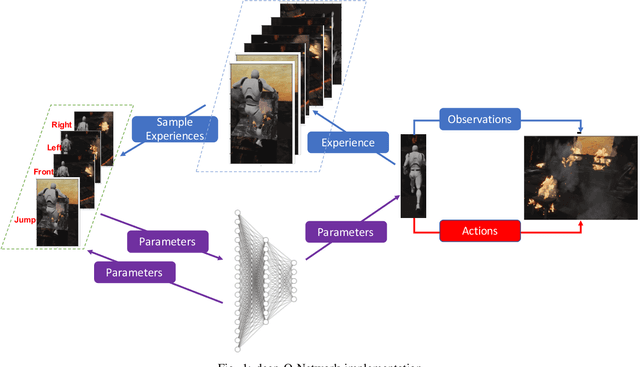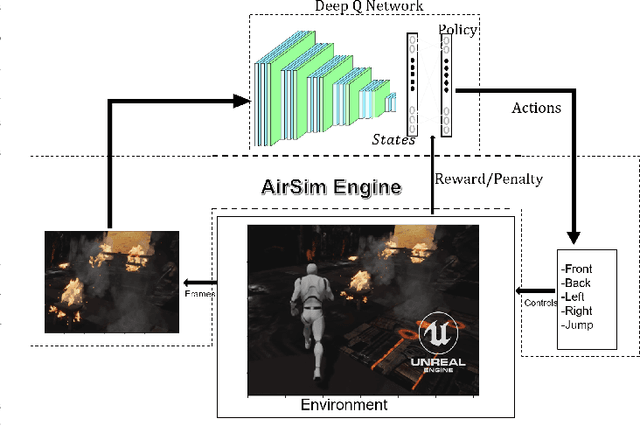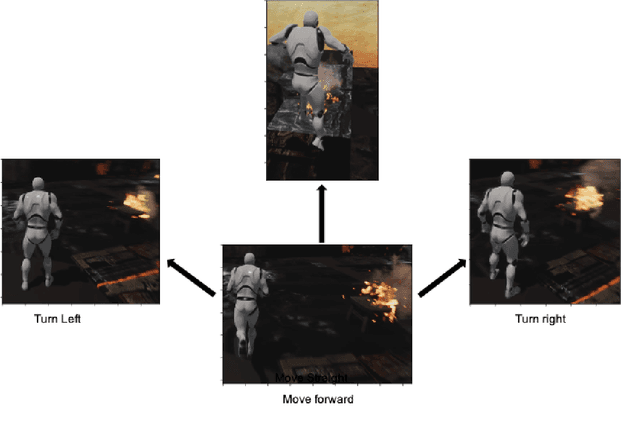Manel Martinez-Ramon
Unsupervised anomaly detection in MeV ultrafast electron diffraction
May 19, 2025Abstract:This study focus in the construction of an unsupervised anomaly detection methodology to detect faulty images in MUED. We believe that unsupervised techniques are the best choice for our purposes because the data used to train the detector does not need to be manually labeled, and instead, the machine is intended to detect by itself the anomalies in the dataset, which liberates the user of tedious, time-consuming initial image examination. The structure must, additionally, provide the user with some measure of uncertainty in the detection, so the user can take decisions based on this measure.
A deep Q-Learning based Path Planning and Navigation System for Firefighting Environments
Nov 12, 2020


Abstract:Live fire creates a dynamic, rapidly changing environment that presents a worthy challenge for deep learning and artificial intelligence methodologies to assist firefighters with scene comprehension in maintaining their situational awareness, tracking and relay of important features necessary for key decisions as they tackle these catastrophic events. We propose a deep Q-learning based agent who is immune to stress induced disorientation and anxiety and thus able to make clear decisions for navigation based on the observed and stored facts in live fire environments. As a proof of concept, we imitate structural fire in a gaming engine called Unreal Engine which enables the interaction of the agent with the environment. The agent is trained with a deep Q-learning algorithm based on a set of rewards and penalties as per its actions on the environment. We exploit experience replay to accelerate the learning process and augment the learning of the agent with human-derived experiences. The agent trained under this deep Q-learning approach outperforms agents trained through alternative path planning systems and demonstrates this methodology as a promising foundation on which to build a path planning navigation assistant capable of safely guiding fire fighters through live fire environments.
 Add to Chrome
Add to Chrome Add to Firefox
Add to Firefox Add to Edge
Add to Edge